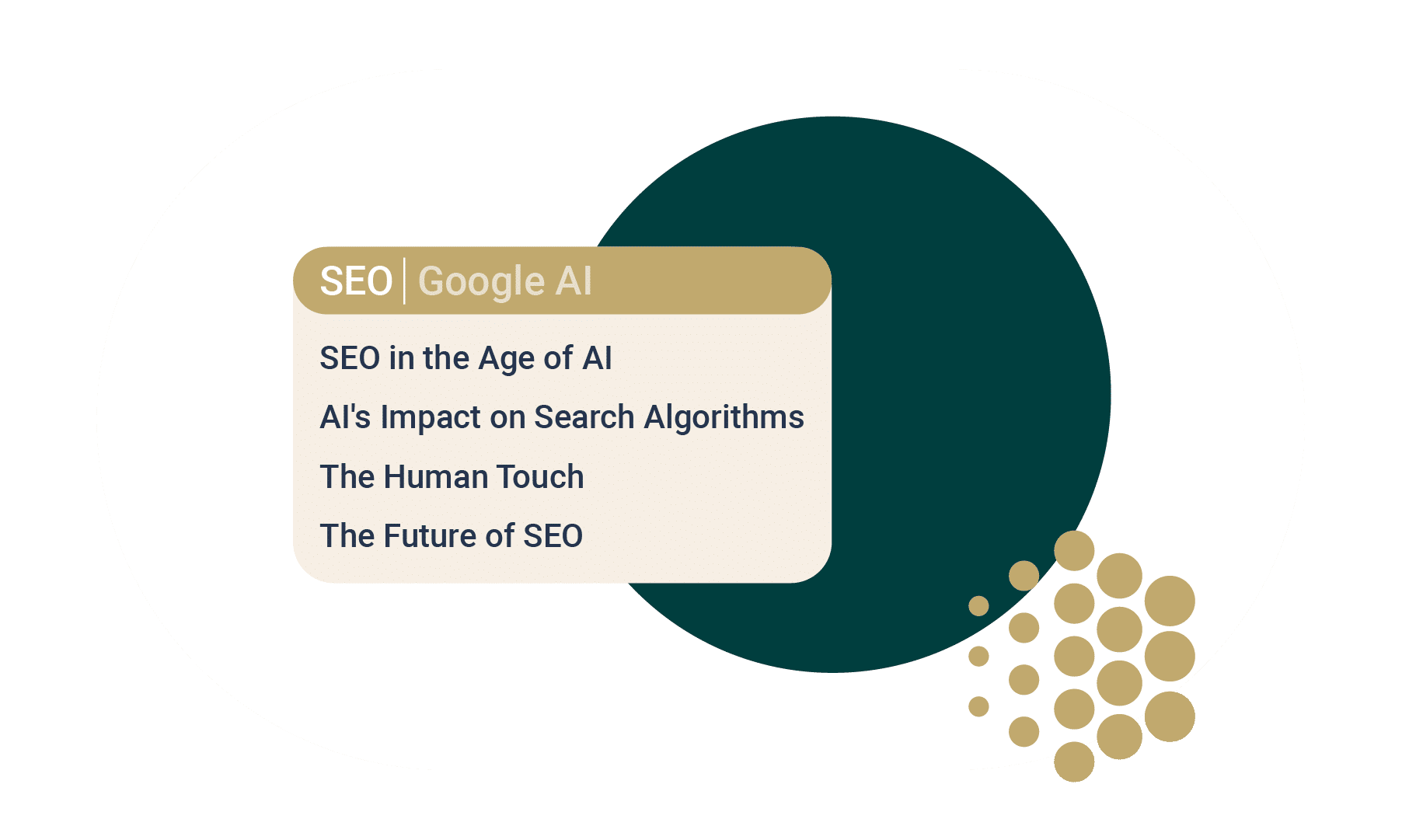
WTF Happened to SEO? AI Did!
Search Engine Optimization (SEO) has traditionally been about optimising website elements to signal relevance to search engines. However, the SEO landscape has significantly transformed in 2024, primarily driven by the integration of generative Ai into major search engines like Google and Bing. What does this mean for marketers, and how should they adapt?
Major SEO Changes in 2024
Generative AI Integration
Generative Ai, known as Ai Overviews, is now embedded in search results on platforms like Google and Bing. Although initial Ai Overviews appeared in 65% of searches, this figure dropped to 35% due to engagement challenges. Nevertheless, search engines continue to refine Ai responses, with new features such as bookmarking Ai-generated responses to enhance their usefulness.
Key Milestones:
- February 2024: Google collaborates with Reddit to better understand how users interact with products and make recommendations. This move highlights Google’s focus on user intent and reviews.
- March 2024: Google begins penalising Ai-generated content, emphasising the need for high-quality, original content. Additionally, it targets websites with poor user experience (UX), urging brands to prioritise user-friendliness.
- May 2024: Google launches a new “Generative Ai feed” providing summaries for complex searches. Marketers should be cautious, as these interactions won’t reflect in traditional analytics, complicating performance tracking.
“Based on the latest algorithm leak, code shows that Google might not be using as much data from Reddit as they originally marketed. But it is important to know that if Google made such a PR movement, it is because they want brands to focus on how people interact on the internet. How do they interact with your brand? With your company? Is your brand being mentioned on the internet? Could it be mentioned on Reddit?”
— Adriana Wertheimer, Digital Strategist at Drew + Rose
Google Algorithm Leak Insights
A significant leak from Google’s search division provides crucial insights:
- Google tracks at least the last 20 versions of web pages.
- Websites with videos on over 50% of their pages are classified as video sites, boosting visibility in Google Video Search.
- Poor navigation and exact match domains can hurt rankings.
Key Takeaways for Marketers
1. Create Content for Users, Not Google
Google now prioritises user-centric metrics like click data and dwell time. This shift emphasises the importance of creating valuable, engaging content for users. SEO is no longer just about technical optimisation – it’s about enhancing the user experience through easy navigation and relevant, timely information.
“The question-and-answer element of content is still so relevant. Think about who your reader is. What is the question or main point you need to answer? Answer as if you are speaking to them. Make sure it is on-brand and has a lot of personality, which will also improve the quality as it’s not the generic stuff that’s coming out.”
— Charlotte Johnson, CEO of Drew + Rose
2. User Experience Is King
Improving UX can dramatically boost engagement and positive word-of-mouth. Despite its importance, 43% of organisations still lack processes for making UX decisions based on user feedback. Clear navigation and intuitive design are crucial for enhancing user satisfaction.
3. Real-Time Testing and Tracking
Real-time testing is essential for understanding what resonates with your audience. Tools like heatmaps help pinpoint areas of user drop-off. Tracking user interactions via GA4 events, particularly dwell time and clicks, is crucial for fine-tuning SEO performance.
4. Build Authority in a Specific Niche
Establishing your brand’s authority within niche markets enhances both credibility and visibility. Encourage discussions about your brand in relevant forums and publications to build niche authority. Actively participating in community building, such as LinkedIn groups, can also help foster engagement and boost your brand’s presence.
Implementing the Strategy
Transitioning from traditional SEO practices to a user-focused strategy involves:
- Continuously updating content to meet evolving user needs.
- Building communities around your brand to encourage user interaction and content sharing.
The integration of Ai into search engines represents a pivotal shift in SEO. To stay ahead in this evolving digital landscape, marketers must prioritise user experience, leverage real-time data, and focus on building niche authority.
For more insights and updates on the latest marketing trends, join our Marketing Moments – In-House Marketing Community dedicated to helping you stay informed.

